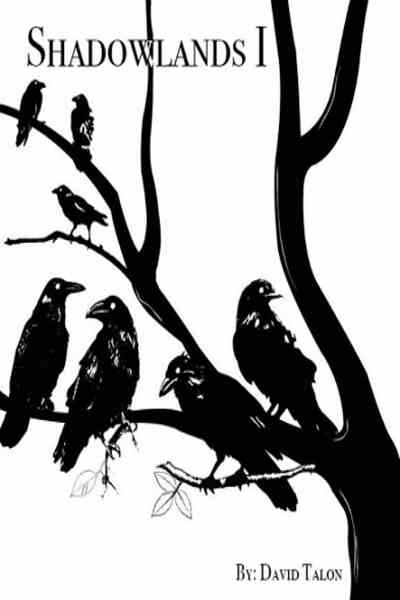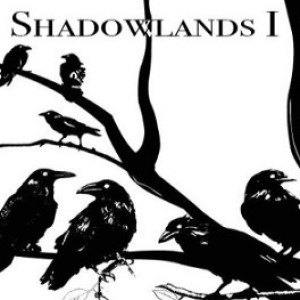On the slope above the road, the bandits are thinking of nothing else except the caravan as they watch it approach. The bandits wear ragged armor of moldy leather and rusty metal scraps scavenged off corpses, or perhaps it is their own gear, broken deserters slinking off long forgotten battlefields and joining together with like-minded scum.
They are spread out in a thin line, hiding behind trees and under bushes, in their hands rusty axes or cheap, town forged katanas, with several holding heavy crossbows normally carried by soldiers of the imperial army. They watch the caravan rolling by, occasionally glancing sideways at the outcropping of rock directly below mine, where scum of a different sort are watching the road from behind heavy brush.
Three men are kneeling on the hard stone, two on either side with red hair, and a young man in the center with short hair white as new snow. He’s obviously the leader; his armor is exactly the same as the female knight’s, except that the Artifact plates on his front, which I see as he turns around to signal the anxious men on the right before turning back again, are arranged in a pattern of a rose. The katana in his hand is castle forged, judging by the ripples in the blade, and the doubt he must be feeling is hidden behind the stern look he wears on his face like a mask.
I’ve never seen him before, but recognize him as the Young Lord of the Rose, the last surviving heir of a clan that rebelled against the empire and lost. Rock Rose was a family of that clan, and I’m guessing when the last of the males were executed, the eldest daughter was given a choice: take on the role of family head and swear fealty to the emperor, or else have your family enslaved. I’m sure the Young Lord and the lady knight know each other well.
The armor of his two squires has not been well cared for, looking little better than the ragged bandits spread out to either side, but both have castle forged katanas sheathed at their sides and short bows in their hands. The one on the right looks to be in his late teen years, his short red hair mixed with a little orange making him a fire-mage, while the other has hair the color of dark blood, his hair partway down his back in a warrior’s braid.
Magic is strange. The shorter you keep your hair the greater your power, but the greater the risk that you’ll use too much and destroy yourself with your own magic. Keep your hair long and the magic is muted, but you can call on much more of it, or divert it towards keeping you alive. I see both effects in the faces of the two squires. Fire-archer has burn marks on his left cheek and forehead, while Blood-archer has a long scar running down the side of his neck from a wound he should be dead from.
I keep my silvery grey hair in a braid down my back just past the shoulders. It’s a good length.
Through the bare trees I see a painted wagon and raise up to get a better look. It’s half the size of the other ones, driven by an old man with golden hair and a wispy beard, its high sides and covered roof making it look like a box with wheels. On the side facing me is the painted image of a young, golden haired girl wearing a simple dress, standing in the middle of a rice field with her arms outstretched, the green plants all leaning towards her.
Beside her in the muck is a noblewoman with a net of pearls in her hair, holding a silver cup for the girl to drink from when she’s finished. More people, nobles and peasants painted standing together, are nearby on dry land. The roof has been painted with the image of a noble lord in armor, standing next to his horse beside a peasant, while the lord’s retainers remain mounted. The lord and peasant are laughing as if sharing a joke.
The scenes are from the time of the empire before the Daemo came. They’re from the days of the good emperors, when the empire was ruled by laws treating everyone the same whether noble or common, when the rich and powerful understood they had an obligation to the poor. His potions could be powerful or little more than just water, but because he’s taken the risk of painting those scenes upon his wagon, the peasants who purchase his healing will be more likely to trust him than if his wagon was unadorned.
Something’s wrong about the wagon, though, and as it passes a gap in the trees I realize it’s not being drawn by horse-oxen or any other animal. The wagon is driving itself. There’s no race upon Earth that can create such a device except one, and when a large figure in rawhide armor, a male seven feet tall and heavily muscled, with a square jawed face and thick eye ridges, walks out in front of the cart to speak with the old man, I understand at once. The old man is the father of an Ogra-Ki.










Comments (0)
See all